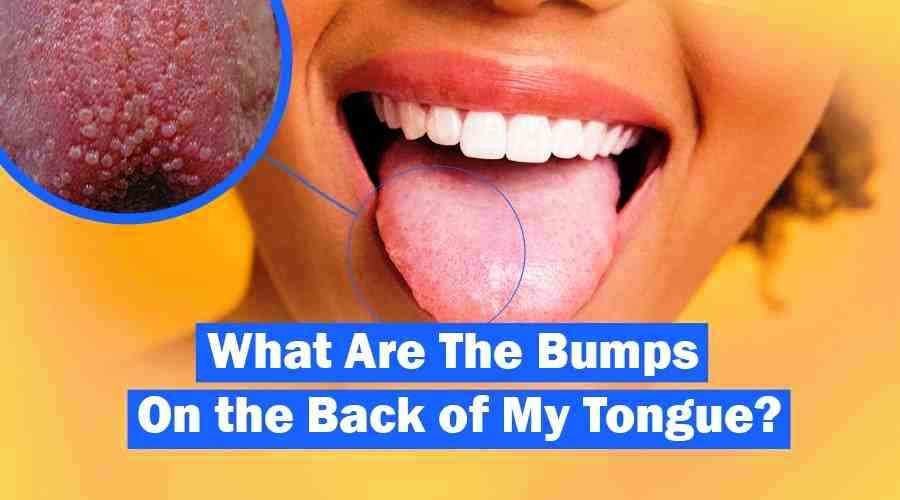The tongue plays a very important role when it comes to the health of your body. But we neglect it and ignore that it can be a key indicator of many health conditions. Your tongue can not only tell whether you are dehydrated or not, but it can also tell about any lack of essential nutrients or if it has any certain diseases.
Commonly referred to as “transient lingual papillitis,” lie bumps denote the condition characterized by the enlargement or inflammation of the papillae, which are the small projections on the surface of your tongue. Typically, these papillae manifest as small bumps that can be either red or white in color. Lie bumps are a prevalent occurrence and tend to resolve spontaneously within a few days.
Have you ever noticed tiny bumps on your tongue? Are you trying to figure out what those bumps are and how they were caused? The small bumps that you may feel are known as fungiform papillae. They are unnoticeable bumps because they are the same color as the rest of your tongue. The rough surface of the tongue is due to them. This rough surface helps with eating and allows us to taste and feel the food’s temperature. Due to many reasons, these papillae may enlarge and become noticeable, which may also result in discomfort. If the bumps start to cause discomfort when eating, then you should consult medical help.
Causes:
There are several conditions or diseases that can enlarge the bumps on your tongue. Some of them are mentioned below:
- Lie Bumps: Transient lingual papillates is another name for lie bumps. If you notice white or red bumps on your tongue, then it indicates that your papillae are irritated, swollen, and inflamed. It can be triggered by some foods, hormones, or stress. They are not serious, but they cause discomfort.
- Canker sores: They are also referred to as mouth ulcers. They can be extremely painful red, yellow, or white sores. They also cause a lot of discomfort and pain, but they are not contagious.
- Injury: If you face a traumatic accident and injure your tongue, then the tongue tends to appear swollen, sore, and bumpy.
- Oral herpes is a contagious disease that shows up on the tongue and in the mouth as cold sores and blisters.
- Syphilis: This is a sexually transmitted disease (STD) that can be easily ignored as it starts with a small sore with no pain. But with time, more sores will appear and then disappear with the progression of the disease. In the early stage, antibiotics can help. But if it takes a serious turn, then medical care is needed before it results in fatalities.
- Scarlet fever: It makes the tongue look red and bumpy, along with a fever and skin rash. It is a contagious disease, so antibiotics help in its treatment.
Tips to prevent bumps on the tongue:
- Less consumption of acidic vegetables and fruits
- No spicy food till the blisters or bumps are treated.
- Quit smoking.
- Use oral hygiene products prescribed by your doctors.
- Avoid the toothpastes that contain Sodium Lauryl Sulfate (SLS) in them.
- You should always avoid scratching your bumps or blisters with your tongue.
- Maintain good oral hygiene by brushing and flossing daily.
- To avoid oral infections, rinse your mouth with warm salt water every day.
Treatment of the Tongue Bumps:
The treatment depends on each case. There are some bumps that can be easily treated with some home remedies and natural methods. But there are treatments that need special medical attention. Seeking medical attention can help rule out the possibility of any serious medical conditions.
Natural ways to treat the tongue bumps:
- Aloe Vera: Aloe Vera helps in getting relief from pain and inflammation as it has natural healing and antiseptic properties. You can put some aloe Vera gel on your tongue and leave it for 5-10 minutes, 3–4 times a day, till the bumps clear.
- Honey: Honey is very helpful in overall oral hygiene. You can add a wet cotton in honey and then apply on the affected area for 3 to 4 minutes daily for 3 to 4 times a day. It will help in treating any tongue problem as it has anti-inflammatory, analgesic, and anti-bacterial properties.
- Coconut Oil: Dip a cotton ball in coconut oil and apply that on your tongue for 5 to 10 minutes, 3–4 times daily. It has proved to be very beneficial because of its anti-bacterial, anti-inflammatory, and analgesic properties.
- Milk: Milk has soothing properties and bioactive compounds in it. Drinking a glass of milk on a daily basis can help treat any oral problems.
- Turmeric: Turmeric has analgesic and anti-inflammatory properties. It is also rich in curcumin compounds that can help in getting rid of any stubborn bumps on your tongue. You can consume turmeric by adding it to your milk, or you can use it after applying honey. Both ways will help you treat the bumps.
- Vitamin B: If you have a deficiency of Vitamin B, then you will get tongue blisters. So, you must consume foods that are rich in vitamin B like eggs, oats, milk, cheese, etc.
- Hydrogen peroxide: It helps in getting rid of canker sores, as it has anti-bacterial and disinfectant properties in it. You can mix equal parts of warm water and hydrogen peroxide. Then dip cotton in it and apply it to the affected area, leaving it for 2 to 3 minutes before rinsing your mouth. By cleaning the sores, you are stopping the spread of bacteria.
- Yoghurt: Yoghurt has properties like natural probiotics and anti-inflammatory, antibacterial, and antioxidant properties. These can reduce the pain and inflammation. Consuming a cup of yoghurt on a daily basis will treat any infection related to blisters.
- Salt: Salt reduces the pain of blisters and inflammation caused by any bumps on the tongue. Rinsing your mouth with warm salt water several times a day will reduce the effect of any infection. Salt has antibacterial properties that can treat any underlying infection on your tongue.
- Tea tree oil: tea tree oil has a compound named terpinen-4-ol in it that is antibacterial and antiseptic. Adding 3-4 drops of tea tree oil to a cup of warm water and then using it as a mouthwash will help treat any oral infection. You can use this mouth wash 3–4 times a day.
- Basil: Basil has medical properties like anti-inflammatory, antibacterial, and antiseptic ones. It is one of the best natural treatments for oral infections. You can chew a few bay leaves three times a day until the infection is gone.
- Ice: Drinking ice water or sucking on ice can help in reducing the inflammation caused by the infection. And it will also help in treating the sores.




